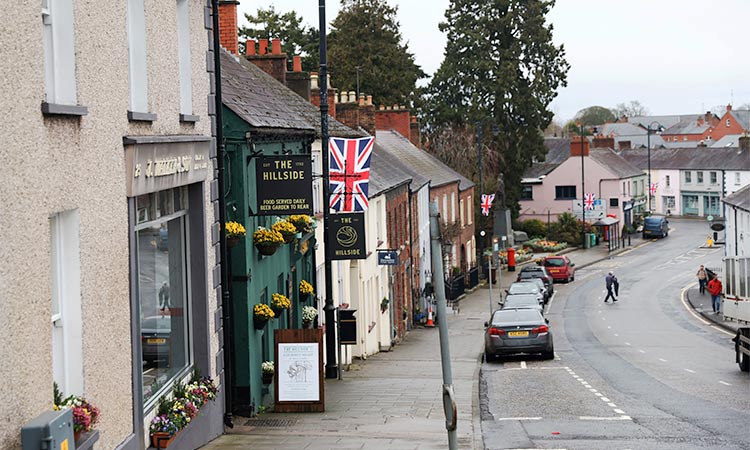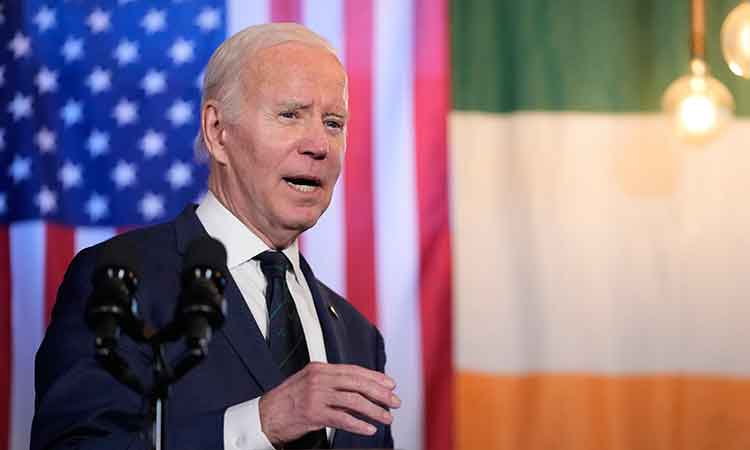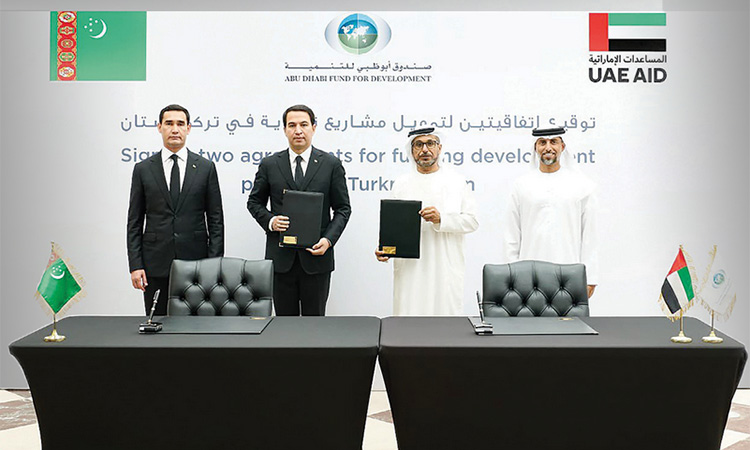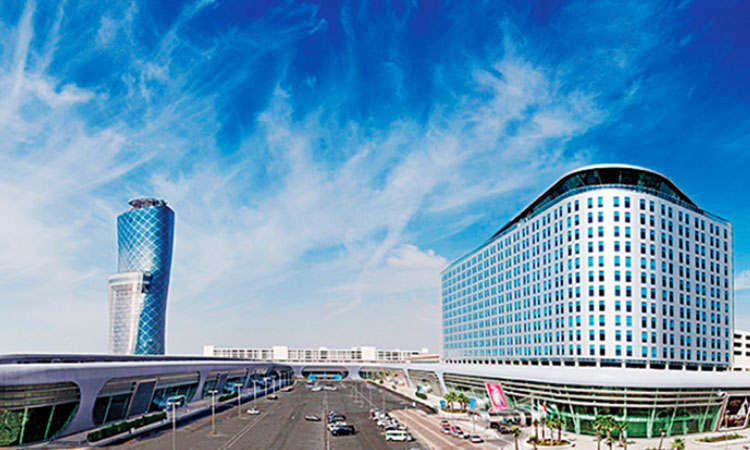It’s the time to unleash Northern Ireland’s full potential

A general view of Hillsborough\’s Main Street which is 12 miles from Belfast and is expected to be visited by President Joe Biden. Associated Press
I was two when the Good Friday Agreement was signed. Despite not remembering the time itself, I’ve found all the events marking the occasion over the past few weeks immensely nostalgic.
As someone who cares about the place I’m from — and wants to make it better — it is so very apparent to me the massive footprint this Agreement has left on our society.
The commemorative events for the 25th anniversary are a testament to how instrumental it has been in promoting peace, stability, and reconciliation in Northern Ireland, and acts as an internationally renowned model of transition into a post-conflict society.
To this day, you can see how other countries have taken inspiration from our Agreement to begin to resolve conflict in their communities.
The anniversary “celebrations” are essential in marking such a distinguished occasion. But, when the history books are written, we should remember that parts of the Good Friday Agreement have not been implemented in full or at all. Establishing a civic forum and committing to integrated education are just two examples.
With that said, the spirit of which the Agreement was reached was never intended to be static, but to evolve as society transitions into a more peaceful and prosperous one. It was always going to be an incremental process.
The “25 Years” headlines provide a unique opportunity to pay homage to those who got us here, reaffirm those principles that need work, and lay out the foundations for our future.
The terms of the Good Friday Agreement commit to avoiding a hard border between Northern Ireland and the Republic of Ireland, which is rightfully seen as crucial for maintaining peace and stability.
The Windsor Framework agreement over this is important, particularly considering the impact and hard work of the European Union in ensuring peace and reconciliation in Northern Ireland. Between funding for community development projects, cross-border cooperation initiatives, and programmes aimed at promoting social inclusion and addressing the legacy of the conflict, many have felt the bloc’s support.
The EU also helped to facilitate the Agreement’s implementation by providing technical and financial support for establishing new institutions, such as the Northern Ireland Assembly and the North South Ministerial Council.
These are all the Agreement’s achievements, but the indirect consequences are also notable. The Europa Hotel opened in 1971 and was one of the only hotels in Belfast city centre, which is now in stark contrast to the more than 3,500 hotel rooms in Belfast today. The hotel was bombed 36 times during the Troubles and remained open throughout the conflict, subsequently becoming a symbol of resilience and endurance for the people of Belfast.
The increase in hotel capacity correlates with the vast growth of visitors to our city. One prime example is the significant increase in cruise ship numbers over the last three decades. According to a report by Cruise Belfast, the number of cruise ships visiting the port increased from just 5 in 1996 to over 170 in 2023. In that same timeframe, cruise visitors have skyrocketed from 8,000 to over 350,000.
Only after the signing of the Agreement could tourism in Belfast and Northern Ireland begin to prosper. In the years since, the region has become a popular tourist destination, with visitors from across the world attracted by our rich history, stunning landscapes, and vibrant culture.
With Belfast’s influx of visitors and revived streets, you would be forgiven for forgetting about Northern Ireland’s political impasse. Stormont has been in operation for less than 60 per cent of the time since power-sharing began, and just like you, we are worried about things like health, education and the cost of living, but we don’t have a functioning government to make decisions. We don’t have a sitting Assembly, and the root cause of that is the vote to leave the European Union.
The Civic Forum of Northern Ireland — another component of the Good Friday Agreement — last met in 2002. This discussion is timely with the publication of a report from Ulster University that estimates the cost of division and duplication of educational services in Northern Ireland at approximately £600,000 a day, or more than £4m a week.
The Good Friday Agreement enshrines the commitment to integrated education and contains a specific pledge “to facilitate and encourage integrated education”. The Department of Education has never established an integrated school, and integrated schools represent just 7.8 per cent of the school estate in Northern Ireland. There is an appetite, particularly with those like me who were born post the Good Friday Agreement, to see the pace of change radically improve.
There are multiple components that the Good Friday Agreement was not designed to solve. The Good Friday Agreement doesn’t tackle legacy nor provide a framework or solution for unexpected political, social or economic and Britain’s decision to leave the European Union is one.
On 31 March, funding provided by the European Social Fund (ESF) ceased.
The UK Government had promised to ensure there wouldn’t be an impasse of security, but they only confirmed they would fill that deficit in the same week the funding was lost. This was too late for many non-profits and charity groups, and we lost a swathe of them.
The ESF has provided significant support to Northern Ireland over the years, helping to address social and economic issues in the region, such as promoting social inclusion, tackling poverty and inequality, and supporting disadvantaged and marginalised communities. This has included programmes focused on improving access to education and training for disadvantaged groups, providing support for refugees and asylum seekers, and promoting community development and cohesion.
Despite our challenges — and we have plenty — my home punches above its weight in the world arena, whether our sportsmanship, technological innovation, or hospitality. We are proud people. And the Agreement is something to celebrate, but we also need to reflect on how far we need to go.
The degree of hope, positivity and ambition is stronger than ever, but we need political stability.
As well as this month marking the 25th anniversary of the Good Friday Agreement, it’s also 111 years since Titanic’s maiden voyage. There’s a distinctive contrast and similarity in both. 100 years before the signing of the Good Friday Agreement, we were a small, industrial city, but we were driven by big ambition. We played a huge part in the shipbuilding, tobacco and linen industry and by the late 1800s, Belfast was truly a global city with a major role on the world stage.
That lapsed with the rise of conflict in our communities, and Brexit risks repeating that lapse. But now, 25 years on from that historic Agreement and 100 years on from when Titanic left our shores, that same hope, ambition and energy for prosperity and an international outlook is cumulating for the next 25 — and 100 — years ahead.
The way ahead isn’t always easy in the way that real life isn’t always easy. It will take hard work, but we’ve done it before. It’s up to all of us now to grasp that opportunity and unleash Northern Ireland’s full potential because by the time we celebrate the 50th anniversary of the Good Friday Agreement, I, for one, am determined to look back and say that I did my bit to get there.







